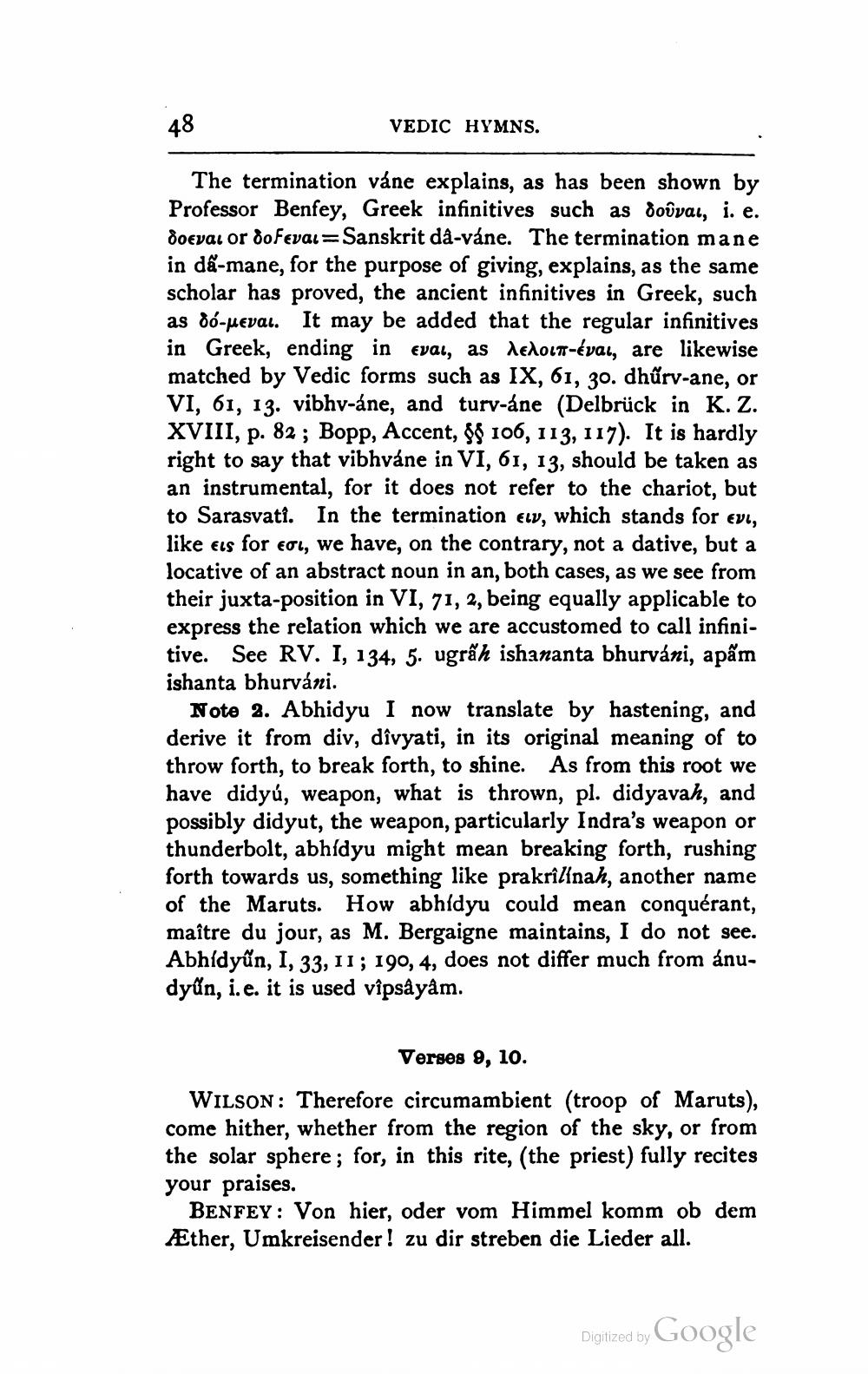________________
VEDIC HYMNS.
48
The termination váne explains, as has been shown by Professor Benfey, Greek infinitives such as doûva, i. e. doeval or do Feval Sanskrit dâ-váne. The termination mane in dã-mane, for the purpose of giving, explains, as the same scholar has proved, the ancient infinitives in Greek, such as dó-μeval. It may be added that the regular infinitives in Greek, ending in evat, as λeλoin-éval, are likewise matched by Vedic forms such as IX, 61, 30. dhurv-ane, or VI, 61, 13. vibhv-áne, and turv-áne (Delbrück in K. Z. XVIII, p. 82; Bopp, Accent, §§ 106, 113, 117). It is hardly right to say that vibhváne in VI, 61, 13, should be taken as an instrumental, for it does not refer to the chariot, but to Sarasvati. In the termination ew, which stands for evi, like us for eat, we have, on the contrary, not a dative, but a locative of an abstract noun in an, both cases, as we see from their juxta-position in VI, 71, 2, being equally applicable to express the relation which we are accustomed to call infinitive. See RV. I, 134, 5. ugrah ishananta bhurváni, apẩm ishanta bhurváni.
Note 2. Abhidyu I now translate by hastening, and derive it from div, dîvyati, in its original meaning of to throw forth, to break forth, to shine. As from this root we have didyú, weapon, what is thrown, pl. didyavah, and possibly didyut, the weapon, particularly Indra's weapon or thunderbolt, abhídyu might mean breaking forth, rushing forth towards us, something like prakrilinah, another name of the Maruts. How abhídyu could mean conquérant, maître du jour, as M. Bergaigne maintains, I do not see. Abhídyun, I, 33, 11; 190, 4, does not differ much from ánudyűn, i.e. it is used vîpsâyâm.
Verses 9, 10.
WILSON: Therefore circumambient (troop of Maruts), come hither, whether from the region of the sky, or from the solar sphere; for, in this rite, (the priest) fully recites your praises.
BENFEY: Von hier, oder vom Himmel komm ob dem Æther, Umkreisender! zu dir streben die Lieder all.
Digitized by Google




